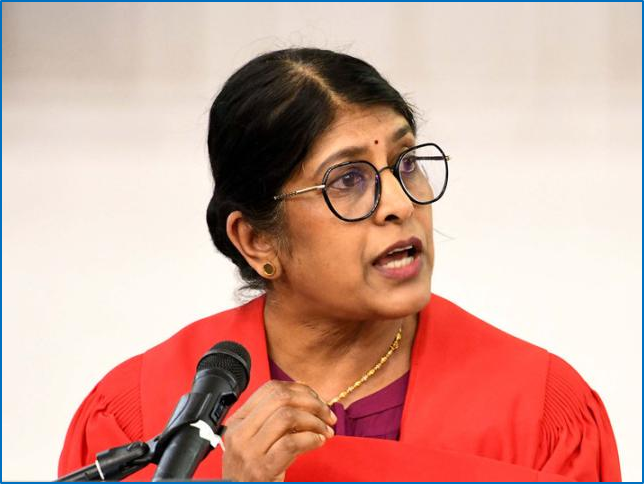This article is part of a series on the Scopus blog, featuring the Scopus Content Selection and Advisory Board (CSAB). The CSAB is an international and editorially independent group of scientists, researchers and librarians who represent the major scientific disciplines. Using rigorous title selection criteria, these experts determine whether journals are eligible for indexing in Scopus, and they continually re-evaluate these titles to make sure quality is maintained.
Throughout this series, we will introduce you to different Board members, offering insights into their roles within the CSAB and exploring their perspectives on the purpose of the Board.


Doctor Jaya Raju is Full Professor and Head of the Department of Knowledge and Information Stewardship, Humanities Faculty, University of Cape Town, and Deputy Dean (Staffing and Transformation) of the Humanities Faculty at the same institution. She holds a PhD in Information Studies from the former University of Natal (now University of KwaZulu-Natal), South Africa. Her academic research primarily revolves around transformative research methodology, particularly as it applies to knowledge production and the promotion of quality in scholarship. Jaya Raju is known for her efforts to bridge the gap between research paradigms conceptualized in the global north and those that provide more nuanced insights in the global south. She has a keen interest in indigenous methodologies that prioritize community-focused research.
Jaya Raju is actively involved in international academic events and organizations. She co-chairs a global group of researchers, representing 15 different countries and supporting over 30 languages. This group has played a significant role in shaping educational guidelines and in promoting research and education worldwide. She frequently travels to present these guidelines and collaborate with colleagues from different parts of the world.
One of Jaya Raju’s key contributions is promoting inclusivity and language diversity in academic publishing. She has advocated for the importance of considering research and scholarship in languages other than English. She believes that journals should be more accepting of research conducted in different languages, recognizing the global diversity of knowledge production.
She served as Editor-in-Chief of the South African Journal of Libraries and Information Science from 2012 to 2018 and as co-Editor-in-Chief of Library Trends from 2021 to 2023. She currently serves on the editorial advisory boards of the African Journal of Libraries, Archives and Information Science; Open Information Science; African Journal of Communication & Information Science; Information Research; and Journal of Librarianship & Information Science. She is the inaugural co-editor of the ALISE (Association for Library and Information Science Education) Book Series on LIS education and research and was co-editor of the International Insights Column of College & Research Libraries News from 2018 to 2022. Her work with these organizations is driven by her desire to provide a global south perspective and to influence the publishing landscape positively. Over her tenure, she has helped change these boards’ approach to language inclusivity and has promoted a more constructive and open-minded atmosphere.
Jaya Raju emphasizes the importance of providing guidance and constructive feedback to authors and journals to help them grow and improve. She believes that every journal has room for improvement and encourages a more understanding and supportive approach in academic publishing. She has actively participated in discussions and decisions that contribute to positive changes within the journal.
She acknowledges that her fellow board members have played a significant role in influencing her approach and that she has learned from their diverse perspectives. She encourages constructive disagreements and believes they contribute to a more vibrant and dynamic scholarly community.
Jaya Raju’s dedication to the CSAB and her willingness to serve without expecting payment reflects her commitment to creating an environment where scholars can collaborate, share their research, and engage in meaningful academic discourse. Her focus is on fostering an inclusive, equitable and constructive scholarly community, promoting global knowledge exchange and making education accessible to all.
Jaya Raju’s journey is an inspiring example of how a committed scholar can have a far-reaching impact on the academic world by promoting inclusivity, collaboration and constructive dialogue.